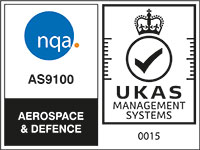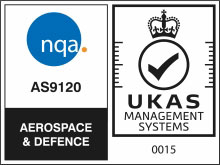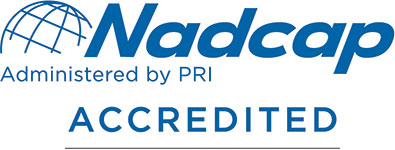Statement of Corporate Governance
The information disclosed is for the purposes of AIM Rule 26 and was last updated on 12 June 2025.
All members of the Board believe strongly in the value and importance of good corporate governance and in our accountability to al of Velocity’s stakeholders, including investors, staff, customers and suppliers. The Board has adopted the Quoted Companies Alliance (QCA) Corporate Governance Code. The Board believes that the QCA Code is most appropriate for the size, risks, complexity and operations of the Group. Details of the Group’s compliance with the ten principles of the Code are set out here:
1. Establish a strategy and business model which promotes long-term value for the shareholders.
Velocity’s strategy is to be the leading supplier of composite material kits to aerospace and other high-performance manufacturers, that reduce costs and improve sustainability.
Velocity manufactures advanced composite material kits for use in the production of carbon fibre composite parts for aerospace and other high- performance manufacturers, such as automotive OEM’s, and pioneers of renewable energy applications. There has been a step-change in the use of carbon fibre in aircraft as manufacturers look to reduce aircraft weight and improve their efficiency to deliver greater sustainability. By using Velocity’s proprietary technology, manufacturers can also reduce costs and free up internal resources to focus on their core business. Velocity has significant potential for expansion, both in the UK and abroad, including into new market areas, such as wind energy and electric vehicles, where the demand for composites is expected to grow.
The core focus has predominantly been in the aerospace industry and the customer arrangements are almost exclusively based on long-term contracts, typically for a 3-to-5-year period. The Group’s strategy and business model are included in the strategic report section of our Annual Report, along with key performance indicators set out in the Financial Review to measure growth and profitability.
2. Seek to understand and meet shareholder needs and expectations.
Under the current Board structure, Velocity engages in regular dialogue with its shareholders through a structured Investor Relations programme. The Group seeks to provide effective communications through the Interim and Annual Reports, as well as regular trading updates through Regulatory News Service announcements. Information is also made available to shareholders through the Group’s website (www.velocity- composites.com).
The Board offers to meet with those institutional and major private investors that wish to do so at least twice a year following the announcement of results. These meetings include a presentation of the latest financial performance, a wider business update and discussion of the longer-term plan. These meetings are normally attended by the Chairman, Chief Executive Officer and Interim (non-Board) Chief Financial Officer. The presentation given at these meetings is also made available on the Company’s website.
Engagement with other key shareholders is also welcomed, with the Directors and other executives meeting both private and institutional shareholders from time to time. The Annual General Meeting presents a further opportunity for all shareholders to meet the Board and other senior managers from across the business.
3. Take into account wider stakeholder and social responsibilities and their implications for long-term success.
The Board and senior management seek to engage with all stakeholders including employees, customers, suppliers, shareholders, industry bodies and local communities in a way to promote the longer-term success of the business.
The main mechanisms for wider stakeholder engagement and feedback can be summarised as follows:
Customers
Dedicated staff in the businesses are responsible for customer relationships. In addition, the technical support and development teams will regularly engage with customers as a fundamental part of delivering ongoing services. Through these well-established channels, Velocity seeks to ensure that the needs of its customers are fully understood so that the Group is well positioned to initiate appropriate actions in response.
Suppliers
The third-party supply base can be the key to the success of the Velocity business. As such, there are processes in place within the business to actively manage supplier relationships in the normal course of business, taking appropriate feedback and developing actions as necessary.
Employees
Velocity is an equal opportunity employer regardless of race, religion, gender, age, disability, sexual orientation, gender reassignment, marriage and civil partnership and pregnancy and maternity. Employees are kept up to date with the performance of the business through periodic briefings whilst all members of staff are encouraged to participate in the annual engagement survey and the feedback acted upon.
Industry Bodies
Velocity is a member of industry bodies such as Northwest Aerospace Alliance (‘NWAA’) and the National Aerospace and Defence Contractors (‘NADCAP’) which are influential in how the Group is perceived by clients.
Community
The Group actively participates in the community and in apprenticeships and other schemes to provide opportunities for young people, such as T-Levels for BTEC Engineering students and Work Experience. We are firm believers in supporting the local economies in which we operate and therefore always look to employ local people, having been awarded membership to the Lancashire Skills and Employment Hub as a business dedicated to supporting local skills and development.
Velocity also operates within the Enterprise Advisor Network, supporting the development of the future generation of employees to ensure we are an employer of choice for the future.
4. Embed effective risk management, considering both opportunities and threats, throughout the organisation.
The Board recognises that it has overall responsibility for ensuring the Group has in place a system of internal control that allows it to manage risk accordingly. The system does not prevent the Group from considering opportunities for growth but takes a balanced approach, safeguarding the assets of the business and providing reasonable assurance regarding compliance with laws and regulations. The system of internal control is therefore designed to manage rather than eliminate the risk and is prevalent across all areas of the business.
The Board performs a regular review of the effectiveness of the system of internal control and takes action as necessary to remedy any significant failings or weaknesses identified in the review. Some of the key internal controls in place include the following:
- An ongoing assessment to identify, evaluate and manage business risks;
- A Management structure with clearly defined responsibilities and authority limits;
- A comprehensive process of reporting financial results to the Board;
- An Audit Committee that reviews the effectiveness of the Group’s risk management process and recommends any new significant risks are referred to the Board for consideration;
- Full appraisals and appropriate levels of authorisation of new contracts entered into, whether these be sales contracts, contracts related to research and development, operating or capital expenditure;
- Dual signatories on all bank accounts to safeguard the assets of the business
5. Maintain the Board as a well-functioning, balanced team led by the chair.
The Board comprises the Chairman, Chief Executive Officer, Chief Financial Officer and two Non-Executive Directors.
The Chairman has overall responsibility for corporate governance and in promoting high standards throughout the Group. He leads and chairs the Board, ensuring that the committees are properly structured and reviewed on a regular basis, leads in the development of strategy and setting objectives, and oversees communication between the Group and its shareholders.
The Board meets on a regular (usually monthly) basis to deal with matters reserved for its decision. These include agreeing and monitoring strategic plans and financial targets, major decisions on resource, overseeing management of the Group and ensuring processes are in place to manage major risks, treasury matters, changes in accounting policy, corporate governance issues, litigation and reporting to shareholders.
The monthly Board meetings have a regular agenda with standing items of Health
and Safety, HR and People, Chief Commercial & Supply Chain Officer report, Chief Programmes Officer report, Chief Financial Officer report and the management accounts. This enables the Board to discharge its duties with all Directors receiving appropriate and timely information and with briefing papers circulated to all Directors in advance of the meetings.
There are two formal Board committees that meet independently of Board meetings and one additional Executive management committee:
Audit Committee
The Audit Committee currently has three members, Andrew Beaden (Chair), David Bailey and Annette Rothwell. The Chief Financial Officer and external auditor attend by invitation. The Audit Committee responsibilities include the review of the scope, results and effectiveness of the external audit, the review of the Interim and Annual accounts, and the review of the Group’s risk management and internal control systems. The Audit Committee advises the Board on the appointment of the external auditors and monitors their performance.
Remuneration Committee
The Remuneration Committee has three members, Annette Rothwell (Chair), Andrew Beaden and David Bailey.
The Committee is responsible for setting the remuneration arrangements, short term bonus and long-term incentives for the Executive Directors and senior management. In addition, the committee oversees the creation and implementation of all employee share plans.
Nomination Committee
The Nomination Committee has three members, Andrew Beaden (Chair), Annette Rothwell and David Bailey. The Nomination Committee meets as required and is responsible for proposing candidates for appointment to the Board, as well as advising on the structure and composition of the Board and succession planning.
Executive Committee
The Executive Committee handles the implementation of the Group strategy on behalf of the Board. The Committee comprises of four members, one of which is an Executive
Directors. It focuses on the long- term vision and strategy for the Group. Primary responsibilities include the oversight of the development, maintenance and implementation of the strategy, management of the overall financial results for the Group, directing operational management and managing shareholder, corporate governance and growth.
6. Ensure that between them the directors have the necessary up- to-date experience, skills and capabilities.
Biographies of the directors may be found here.
7. Evaluate board performance based upon clear and relevant objectives, seeking continuous improvement.
Whilst the restrictions imposed by the Covid-19 pandemic have been lifted and the focus of the Board returns to delivering growth for Velocity, the Board also recognises that some of the key challenges and practices entered into during the pandemic (for example, cash flow forecasting) remain the same.
With this in mind, the new and existing Board members have been set objectives that are relevant to the Group’s current position and performance against these objectives will be monitored as the year progresses.
8. Promote a culture that is based on ethical values and behaviour.
Our long-term growth is underpinned by our seven core values:
- We place our staff first, putting ourselves in their shoes to understand the current and future needs of those who work with us.
- We value our customers determining how to anticipate their current and future needs and how to exceed their expectations.
- We place importance on our suppliers and pay invoices on a timely basis, are clear in negotiations and have an ongoing dialogue.
- We communicate with our shareholders and explain our strategy clearly and the challenges Velocity faces.
- We are team players who recognise that Velocity is worth much more than the sum of its parts and we are committed to learning from one another.
- We are committed to innovation in what we do and how we do it, and to working smarter rather than harder to reduce costs, increase efficiency and help aircraft parts’ manufacturers to increase build rates.
- We respect one another and are courteous, honest and straightforward in all our dealings. We honour diversity, individuality and personal differences, and are committed to conducting our business with the highest personal, professional and ethical
The culture of the Group is characterised by these values which are communicated regularly to staff through internal communications and forums. The core values are also communicated to prospective employees in the Group’s recruitment programmes and are considered as part of the selection process.
The Board believes that a culture based on the seven core values is a competitive advantage and consistent with fulfilment of the Group’s mission and execution of its strategy. It is the responsibility of the Executive Management Committee to evaluate how the Company might better achieve these objectives, and report to the Board on a regular basis.
9. Maintain governance structures and processes that are fit for purpose and support good decision- making by the board.
Details of the governance structures and processes adopted by the Group are set out on this website.
10. Communicate how the Company is governed and is performing by maintaining a dialogue with shareholders and other relevant stakeholders.
The Board believes that corporate governance is more than just a set of guidelines; rather it is a framework which underpins the core values for running the business. The Board has formal responsibilities and agendas and three sub- committees; in addition, strong informal relations are maintained between Executive and Non- executive Directors.
Non-executive Directors meet with other senior managers and give advice and assistance between meetings.
The Chairman, Chief Executive Officer and the Chief Financial Officer make presentations to institutional shareholders and analysts each year following the release of interim and full year results. They also attend retail shareholder events. The slides used for such presentations are made available on the Group’s website under the ‘Reports and Presentations’ section. They also meet regularly with the Group’s Nomad/broker and discuss any shareholder feedback, following which, the Board is briefed accordingly.
All Directors attend the Annual General Meeting and engage both formally and informally with shareholders during and after the meeting. The results of voting at the AGM are communicated to shareholders via RNS and on the Group’s website.



